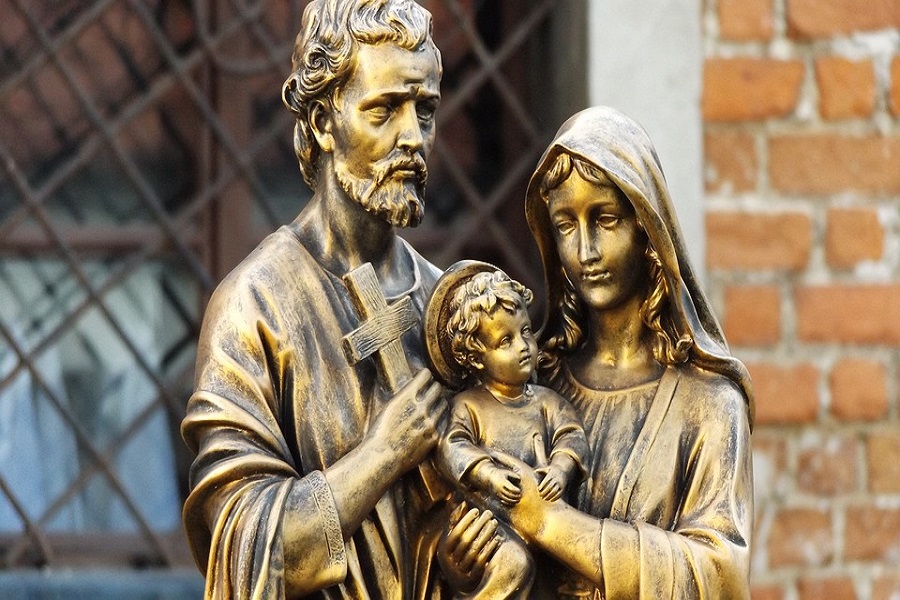
Feast of the Holy Family
12-27-2020Weekly ReflectionThe first reading is a commentary of Ex. 20:12: Honor your Father and your mother, that you may have a long life. At this time, the Jews do not know yet much about life hereafter; a long life for a Jew was the highest honor. Anyone who honors a parent atones for sins. A truth based on the belief; that it also atones for many other sins. Sirach also asks children to love their parents, especially when they grow old when their health starts to fail.
St. Paul recognizes that in baptism, one takes off the old clothes and puts on new clothing, the symbol of being a chosen one, holy and beloved. They shall put on heartfelt mercy, kindness, humility, patience: Over all these virtues put on love, which binds the rest together and makes them perfect. Love keeps all other clothes, all other virtues in place so that he who loves; practices all virtues. (Rom. 13:89)
READ MORE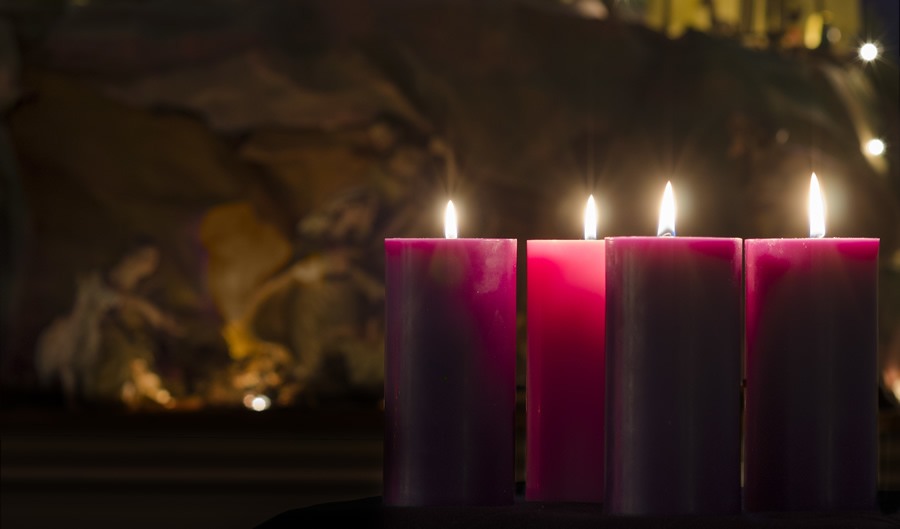
The Lord Has Done A Great Thing for Us
12-20-2020Weekly ReflectionThe prophecy of Nathan about David became the basis for Israel’s expectation that the Messiah will come from the royal family of David, making Him the Son of David. The offspring of David is both individual and collective. First, it refers to his direct descendant (individual) Solomon, who eventually built the temple. And second, as a dynasty, which refers to the series of kings who occupied the throne of David.
To God alone be the Glory, that should be the end and fulfillment of this life. God alone gives us strength and power through the Gospel of Jesus Christ. Since the beginning, God decreed the salvation of man. For a long time: the fulfillment of this decree is hidden. Today, God reveals the mystery in Jesus Christ, the Son of God of the line of David. In context, the liturgy of the Word this Sunday, this mystery applies to the Incarnation of Jesus Christ. With the Incarnation, the plan of God for salvation is now in motion.
READ MORE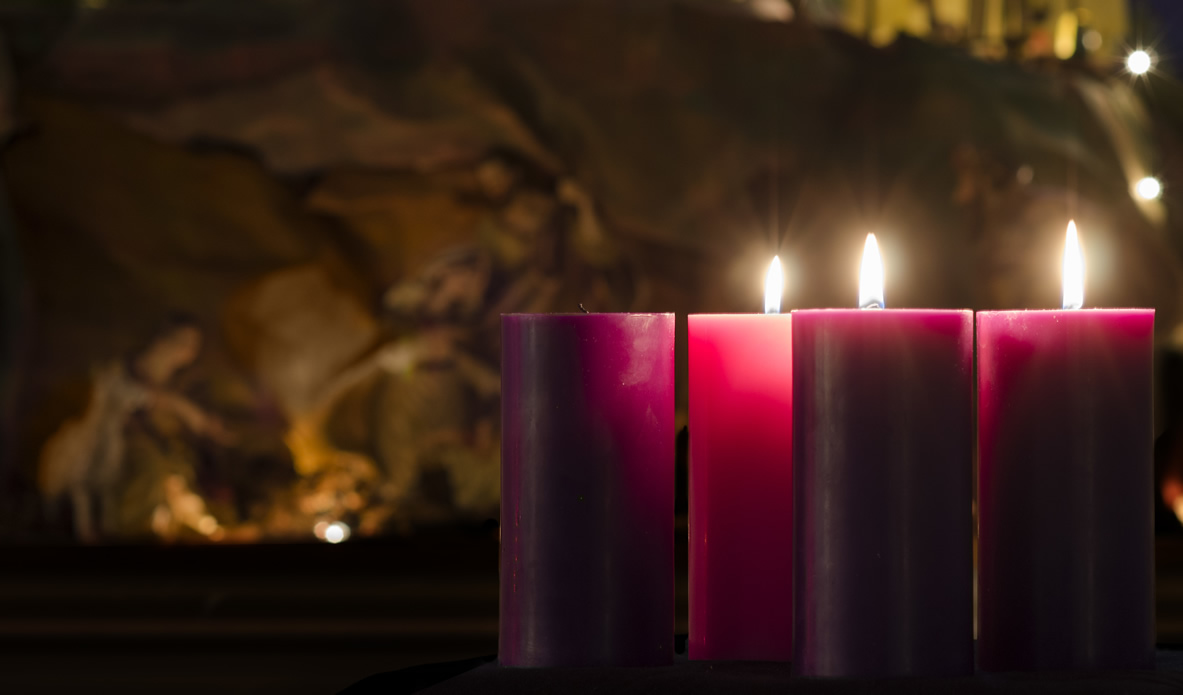
Gaudete Sunday
12-13-2020Weekly ReflectionThe New Testament writers see this poem of Isaiah fulfilled in Christ, the Messiah. The prophet announces the work of salvation of the Messiah, liberating every soul from captivity. The presence of the word spirit in this poem signifies a special election for the mission entrusted by God.
There is an especial emphasis on joy, prayer, and thanksgiving in the 2nd reading: that is the sign and the true spirit of those who claim to follow the way of Jesus Christ. But Paul also wants the work of the Spirit to grow in the community of Thessalonica. He wants the ontological composition of man: spirit, soul, and body emphasized, for they represent the whole man from different angles.
The Gospel introduces John the Baptist as the witness of the light. John is the lamp that brings the light to the people. He does not have any illusion of being the Messiah and neither a prophet like Elijah. He is just the forerunner or herald preparing the way of the Messiah. He is the messenger: the message (Christ)is the most important not the messenger (John).
READ MORE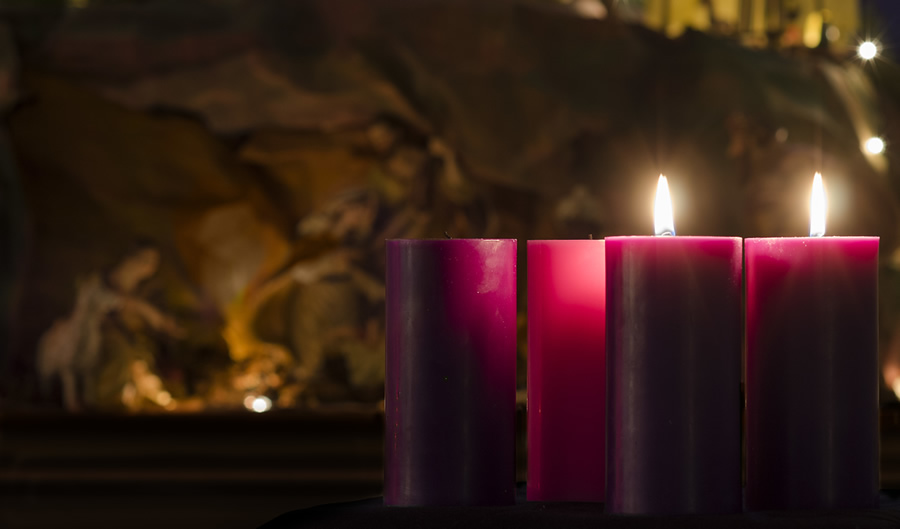
2nd Sunday of Advent
12-06-2020Weekly ReflectionMark starts his Gospel alluding to Isaiah’s description of the Precursor or Herald of the Messiah. The allusion to the prophet and the reference to his prophetic action implicitly depicts John the Baptist as the link between the Old and New Testament. Technically putting John as the last prophet of the Old Testament but the first witness to Jesus Christ, the awaited Messiah. The mention of Isaiah is important because he was foremost among the Major Prophets to prophesy the coming of the Messiah. The text of v.2: “I am sending my messenger-he will prepare the way before me…” originally comes from (Mal. 3:1), points to the fact that the Old Testament, if read in the light of the Messiah/Christ, is itself a Gospel.
What is the mission of this Herald of the Messiah? “Prepare the way of the Lord, make His path straight.” Just as in Exodus, God promises to send his messenger to Israel and guide them to the promised land, the character we all know to be attributed to Moses. Someone prepares the way is a classical expression in Jewish literature of God’s comfort and salvation. In the Christian context, John the Baptist is alluded to as the voice in the wilderness and Jesus is the Lord whose ways he prepares and makes straight.
READ MORE
Watchful and Joyful
11-22-2020Weekly ReflectionToday is the first Sunday of Advent, the time for preparation for the birth of our Lord Jesus Christ. In Mk. 13: 33 37, Jesus reminds us of the need to be watchful, Vigilant and Joyful. Only one thing is definite: The Lord is coming. The simile of the fig tree in Vv. 2831 indicates that Jesus may arrive later than what people expected, but He will surely come. It is as definite as the growth of the tree and its cycle of life. The image of the master of the house indicates that he is unsure of his return. He can come home anytime. Thus, his servant must be watchful and vigilant, just as disciples must be watchful and prepared for Jesus’ second coming. The exact time is unknown: He wishes to hide this with us so that we will remain vigilant. The spirit of watchfulness and vigilance is necessary in every generation, for His coming to be an awaited event. Throughout the Advent Season, the Church invites us to keep our sense of watchfulness and vigilance with a joyful disposition.
READ MORE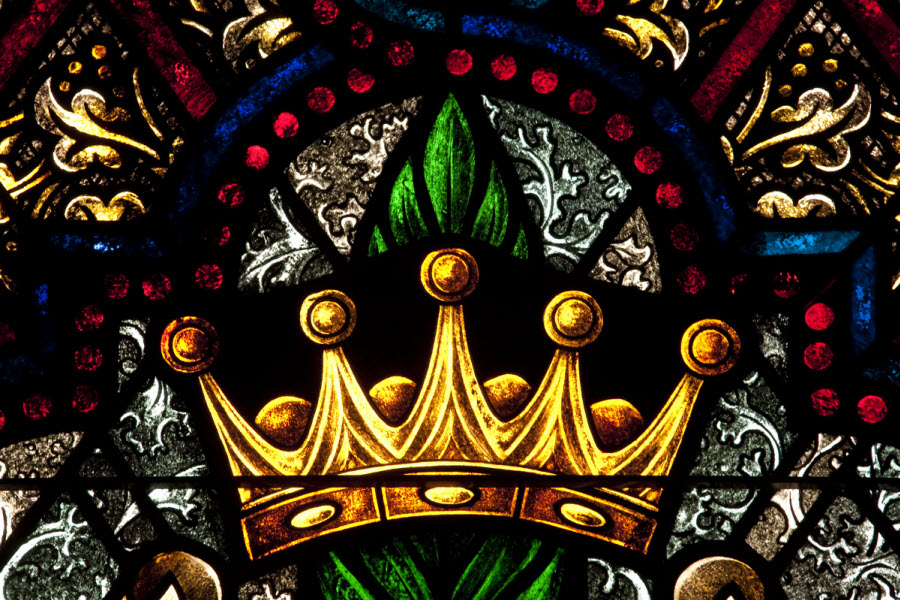
Solemnity of Christ the King
11-15-2020Weekly ReflectionThe last Sunday of the liturgical year is the Solemnity of Christ the King, an anticipation of the Second Coming of Christ. Next Sunday, we will begin a new liturgical year with the celebration of the season of Advent. David was the second Jewish king but the most beloved, despite some moral lapses during his reign. He was the first king to consolidate the whole Kingdom of Israel. Kings in the Old Testament were “shepherds,” but among all the kings, David was considered a good shepherd. Before he became a king, he was already a good shepherd protecting his father’s flock from wild animals and even risking his life for his sheep. As a king, David continued to be a good shepherd protecting Israel from all their enemies. As a result, his son King Solomon was able to rule in relative peace and prosperity.
READ MORE
33rd Sunday Reflection
11-08-2020Weekly ReflectionIn the Gospel, Jesus tells us about the Parable of the Talents. He gives talents to each one of us according to our abilities and expects an accounting of how we managed our Talents. For everyone who has, more will be given… from the one who has not, even what he has will be taken away. (Mt. 25:29)
God is the source of all our talent, and we are just stewards. The parable also teaches the value of work, hard and honest day’s work. Are we hardworking, or hardly working, or are we pretending to be busybodies? Are we doing honest or dishonest work? In the end, the question is: Are we an asset or a liability to the world or humanity? Putting it bluntly, are we a credit or a debit to the good of creation or God’s Kingdom here on earth. We are all given talents, and Yes! Some have more talent than others. All our Talents and blessings are Godgiven. We must discover, develop, and nourish these talents for the good of the many. There are exceptional talents, like Mozart, Beethoven, Michael Angelo, or Albert Einstein, but most Talents are developed and earned. It is not the number of talents that matters. Some people have so much talent but have not become successful. Why? Of course, there are many factors, like pride, laziness, and even the timing. On the other hand, some barely have the talent but succeed and excel exceedingly. Do your best, and God will do the rest. Or people who do their best, and give their very best or their 100% always. The road of humility and hard work leads to success.
READ MORE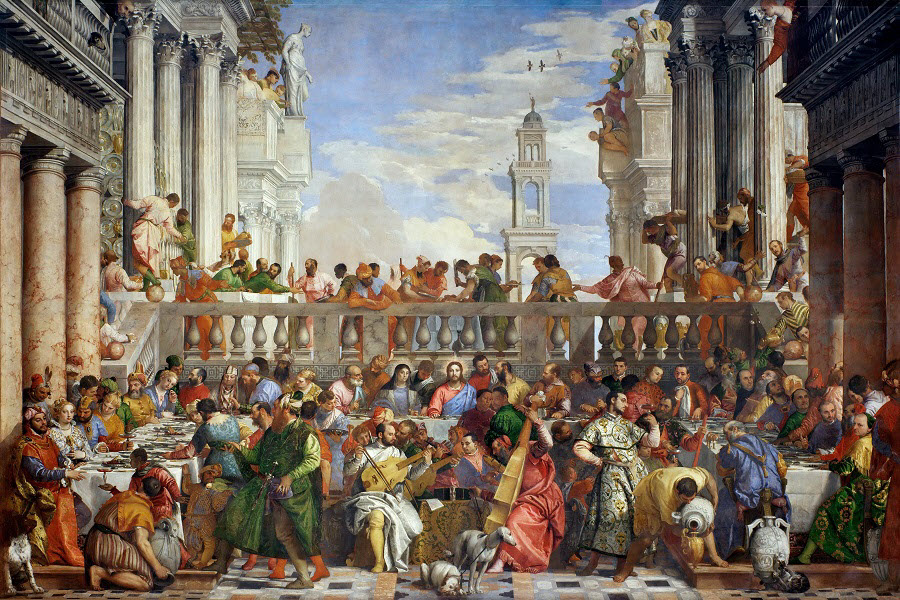
Be Prepared for the Lord’s Coming
11-01-2020Weekly ReflectionIt is not unusual that Jesus uses a wedding feast to describe the Kingdom of God. Jewish wedding feasts are a joyous celebration and an occasion to celebrate happiness and life. The parable illustrates that those who accept and patiently await the coming of the Kingdom and respond with repentance and faith will be allowed entry when He finally comes. The foolish virgins stand for the Jewish community, which rejected the invitation of the Lord and were not ready and vigilant for His coming. And the wise virgins are those who accept and keep the commandments, Jews and members of the new Church who hear the Word and do it. The climax of a Jewish marriage tradition is the nocturnal coming of the bridegroom into the paternal house, where the wedding ceremony takes place, followed by a grand wedding feast. The groom picks up the bride in her home, and a procession leads to the house of the groom, the paternal house. The bridesmaids wait for the groom with their lighted lamps and lead the way in a festive mood.
READ MORE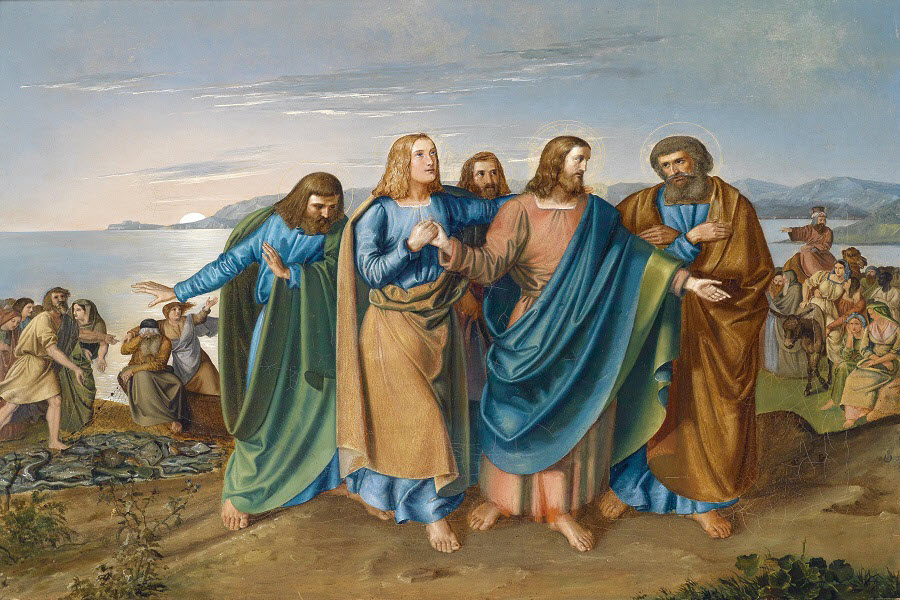
Solemnity of All Saints
10-25-2020Weekly ReflectionThe recurring theme in the book of Revelation is about victory. The victory of Christ, after His suffering and death, now reign victorious and gloriously triumphant in Heaven. Because of this, those who remain faithful will also be victorious in their trials and sufferings. The second reading teaches us that Divine Sonship is sharing in God’s own Son. A “here and now” concept, which means that we already experience this life, but its complete fruition will be when we reach His Kingdom, where God reigns supreme.
The Beatitudes (The Blessed) present the new spirit required of the disciples of Christ. A disciple works not for the benefit of the temporal end but the promised Kingdom. Their motivation is the Messianic blessings, be comforted with God’s victory against the forces of evil, a beatific vision, and the joy of seeing God face to face.
READ MORE
30th Sunday in Ordinary Reflection
10-18-2020Weekly ReflectionThe Book of the Covenant in Exodus asks the Jews to extend charity toward the poor and the weak. A charity to a neighbor that is compassionate, hands on, and applied even in small things. The Gospel tells us to love our neighbor as ourselves, especially the poor and the marginalized. Matthew positions love of neighbor after the foremost commandment, you shall love the Lord your God with all your heart, with your whole soul, and with all your mind. For this reason, Jews practice it by putting into heart this most important commandment, the Shema Israel.
The Commandment to Love God and Neighbor
Matthew emphasizes in this text the unity between the two greatest commandments to love God and to love our neighbor. The commandment to love takes preference then any other commandment. To explain and reveal the meaning of the Ten Commandments, the Pharisees came up with 613 laws, positive and negative. Unfortunately, it became a burden more than a relief, that even the best effort of a pious Jew often falls short. By teaching the greatest commandment, Jesus has effectively reduced the 613 laws into one encompassing perfect commandment.
READ MORE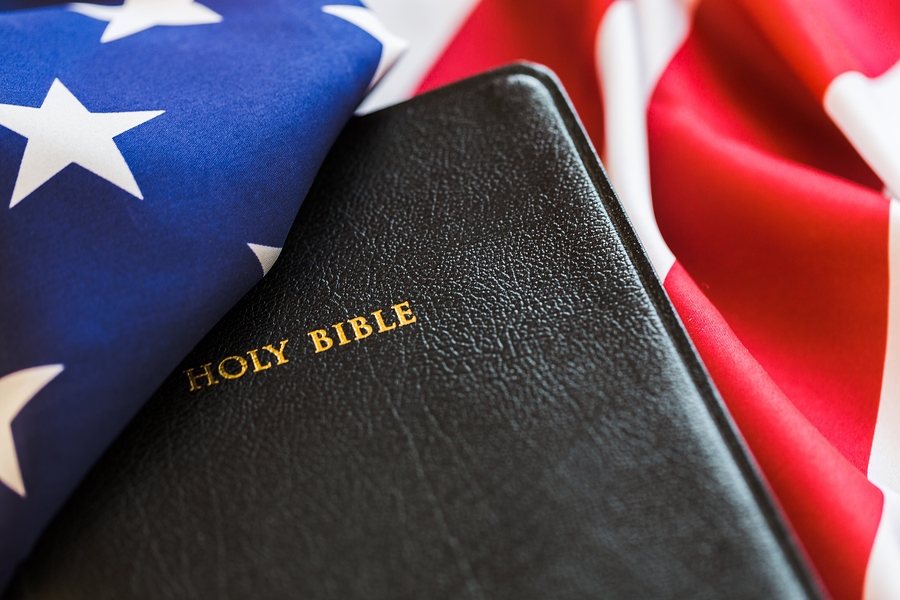
What is the Biblical Attitude Toward the State?
10-11-2020Weekly ReflectionIn the 1st reading, God anointed Cyrus and shows favor on his rule of the kingdom. Although Cyrus did not know God, his reign is legitimate. But still, the service of God takes precedence over human authorities or institutions. By this time in the Gospel, Jesus' fame and presence are well known not only in Galilee but also in Judea. Jewish leaders are more and more insecure about Jesus' popularity. As so often, they want to entrap Him in words and deeds. Their new modus was to start with overloaded insincere praise to make Him speak out openly. Then with malice in their heart, ask a seemingly innocent but twoedged sword question: Is it lawful to pay taxes to the emperor or not? Census taxes were very minimal, but paying this is regarded as an acknowledgment of Roman dominion over the people of God and thus becomes a religious question. A silver Roman coin is equivalent to one (1) denarius, a day’s wage.
READ MORE
The Parable of the Wedding Banquet
10-04-2020Weekly ReflectionIsrael finally overcomes the burdens of their guilt, their unfaithfulness to the “covenant.” At the eternal banquet, all of Israel invited to the Holy Mountain, where Yahweh is declared King of all nations. First to be invited are the chosen people Israel. Those invited could not come: everyone has an excuse; thus, those finally invited are people in the streets. But those who came are expected to respect the protocol in a wedding banquet. There is a “dress code” at the wedding banquet. The independent theme of the 2nd reading tells us about the value of a gift. Paul appreciated so much the help of the brethren at Philippi. The giver is a “sweet odor for God” and makes the person rich for the giving.
God’s Invitation: Eternal Banquet
READ MORE